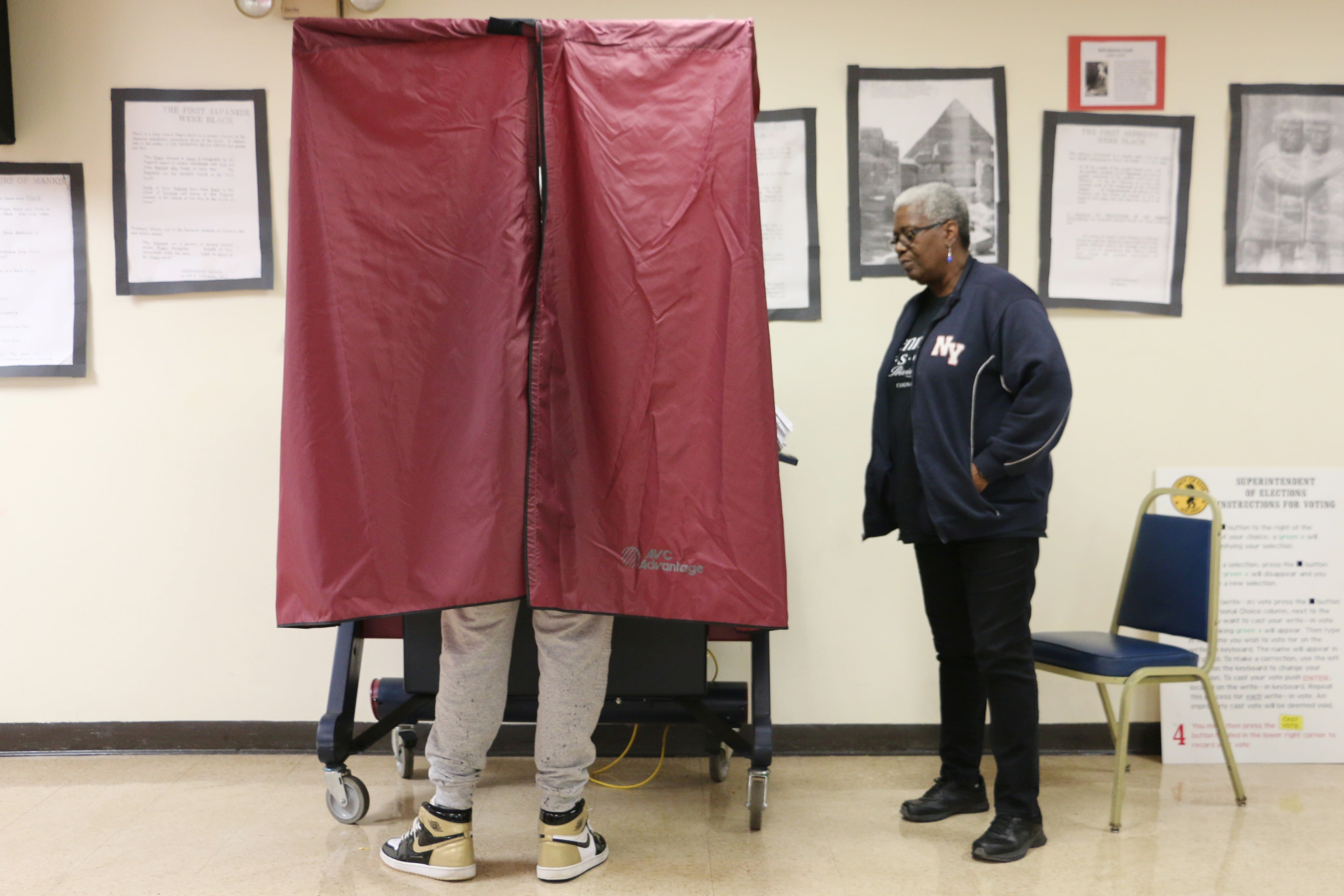Newark voters head to the polls Tuesday to select three candidates from a pool of eight during a pivotal time — three years since the district regained full local control of its schools and the same number of years since the COVID-19 pandemic disrupted student learning.
Six of the eight candidates are running on three-member slates, while two other newcomer candidates are running independently. On the Moving Newark Schools Forward slate are incumbents Hasani Council and Josephine Garcia, joined by Allison James-Frison, who unsuccessfully ran for a school board seat in last year’s race. This slate has historically had strong backing from powerful politicians, including Mayor Ras Baraka and Senate Majority Leader M. Teresa Ruiz.
The opposing slate is Newark Kids Forward, which includes another candidate who ran unsuccessfully last year, Thomas Luna, along with Tawana Johnson-Emory and James Wright Jr. This slate has a strong charter influence: Luna is a teacher at KIPP Rise Academy and Wright Jr. teaches at North Star Academy Washington Park High School.
Rounding out the pool of candidates are newcomers Latoya Jackson, a hair salon owner, and Ade’Kamil Kelly, a real estate agent and team leader at the Boys and Girls Club of Newark.
Voters will be choosing candidates to fill three seats on the nine-member school board that each come with three-year terms.
Incumbent Flohisha Johnson chose not to seek a third term.
Voter turnout for recent past school board elections has been sparse. Last year, turnout was just under 3%, with about 6,000 of 210,000 voters casting a ballot.
The election comes as the district is tasked to spend its federal COVID relief funds by the federally imposed deadline of September 2024. The district received a total of about $288 million in three relief packages that Congress approved to help schools respond to the pandemic. Newark still has $183 million total to spend from the last two relief packages, according to a state-run dashboard last updated on April 10.
Most of the money has been earmarked for building repairs and technology upgrades, while a smaller portion has been set aside for teaching and learning, although Newark students’ reading and math scores show significant learning loss that put them far behind pre-pandemic rates. For example, third graders meeting proficiency standards in math went from 35.4% in 2019 to 15.1% in 2022. In reading, the percentage of third graders meeting proficiency dropped from 28.5% in 2019 to 19% in 2022.
Voters will also need to decide whether to approve the district’s $1.3 billion budget, which is supplemented by a $138.3 million tax levy and $1.2 billion in projected state aid. Taxpayers won’t see an increase in their property tax bills next year under this budget.
The eight candidates shared with us their thoughts on what the district is doing well, how it can improve, transparency, learning loss, mental health services, and more. Click around the interactive feature below to get to know where the candidates stand on top education issues. The biographies and answers have been lightly edited for clarity and length.
Catherine Carrera is the bureau chief for Chalkbeat Newark, covering the city’s K-12 schools with a focus on English language learners. Contact Catherine at ccarrera@chalkbeat.org.






